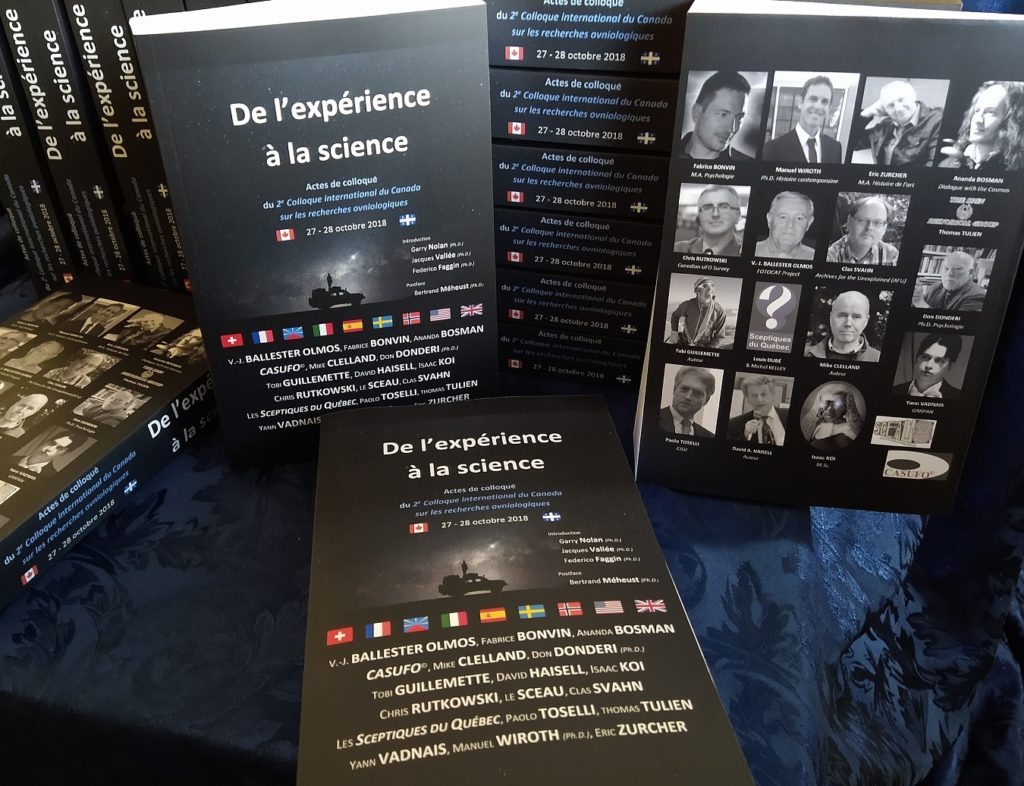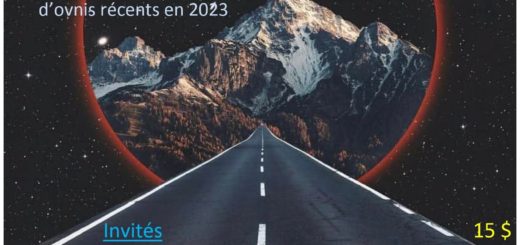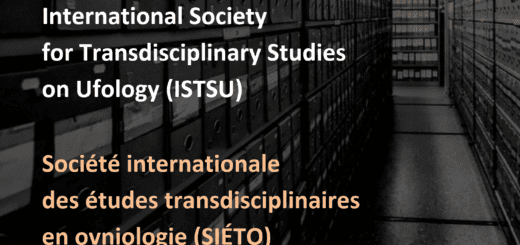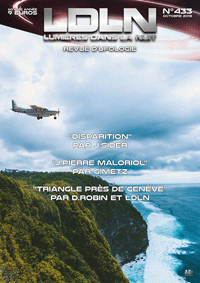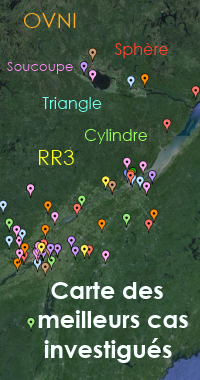Yann Vadnais will represent Canada at the prestigious GEIPAN international conference / CNES (Support her ‘Go Fund Me’ campaign)
REPRESENTATIVE OF CANADA at the CAIPAN workshop 2 from CNES-GEIPAN
The 13-14 next October will take place in Toulouse (France) the international symposium entitled "Atelier CAIPAN 2 », which is organized by the National Center for Space Studies (CNES). This symposium, the last edition of which took place in 2014, is one of the most respectable gatherings in the’international scholarly ovniology. Canada will be represented by Yann Vadnais (communication orale).
This bilingual workshop, dedicated to research on UFOs and UAPs, will welcome around fifty international participants. The two themes for this year are :
1- “Studies on UAPs” ;
2- “Methodologies, scientific approaches and expertise involved in the analysis of UAPs ».
The GEIPAN (under the direction of CNES) is there’official body dealing with reports of UFO sightings and UAPs in France.
The acronym CAIPAN stands for “Collection and Analysis of Information on Unidentified Aerospace Phenomena”.
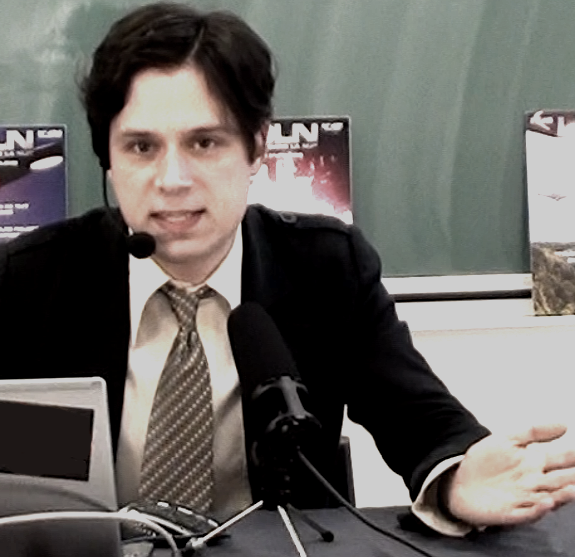
Yann Vadnais is a researcher in humanities and ancient literature (Université Laval), who specializes in the history of ideas and the history of memory. His civilizational fields of research are Greco-Roman late antiquity, Eastern Societies of Antiquity and the Renaissance.
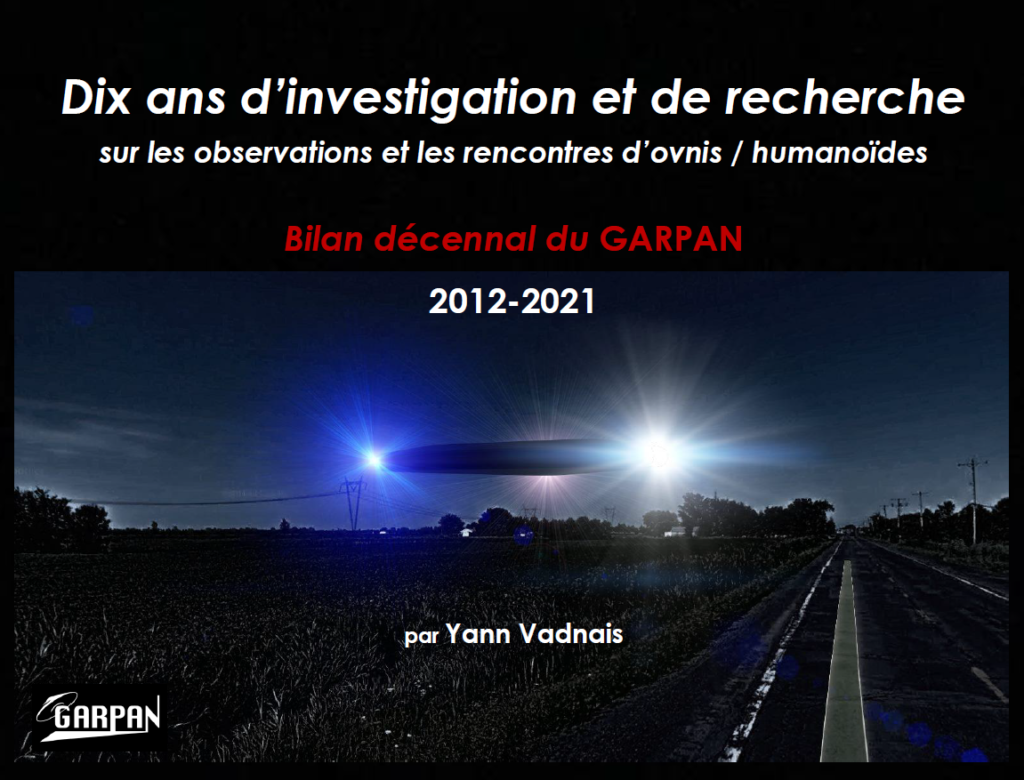
In the field of ovniology, he is director of GARPAN (from 2012) and Garpan editions, as well as president of the International society for transdisciplinary studies in ovniology (SIÉTO)
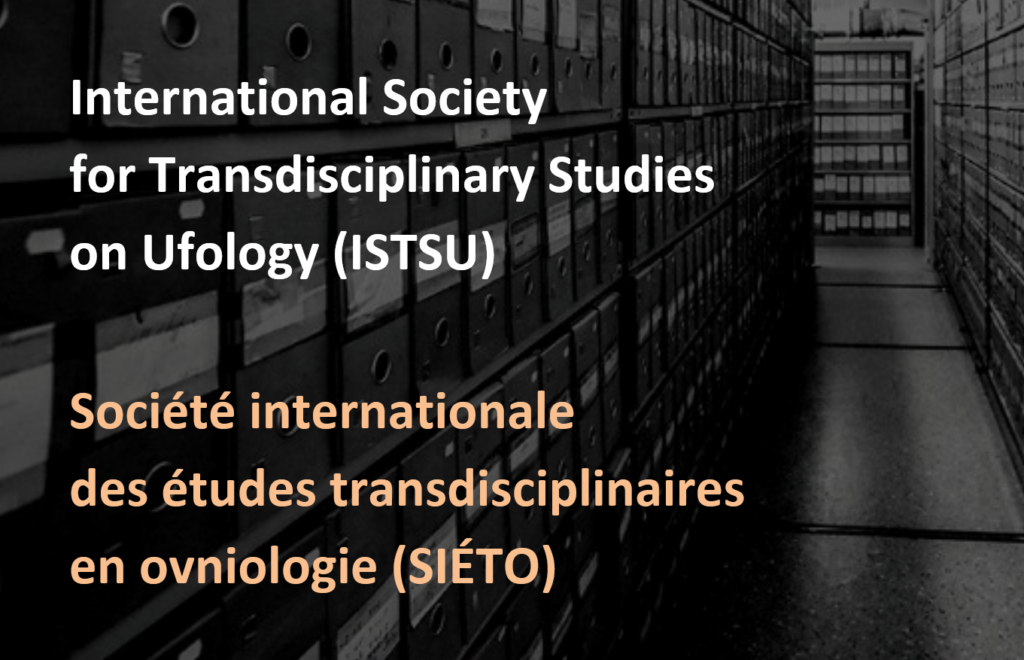
Note that Mr. Marc Leduc will also participate in the CAIPAN Workshop 2 with the presentation of a scientific poster.
Marc Leduc is one of the pioneers of ovniology in Quebec, founding member of’UFO Québec (1975-1984). He is currently publishing his work on Academia.edu : https://independent.academia.edu/LeducMarc
* * * * * * * * * * * * * * * * * * * * * * * * * *
Pour finance this professional trip, the GARPAN team launched a fundraising campaign on the site Go Fund Me :
Funds raised will be used to pay for airfare, local accommodation and ancillary costs to meet our colleagues in France.
Jackpot Go Fund Me

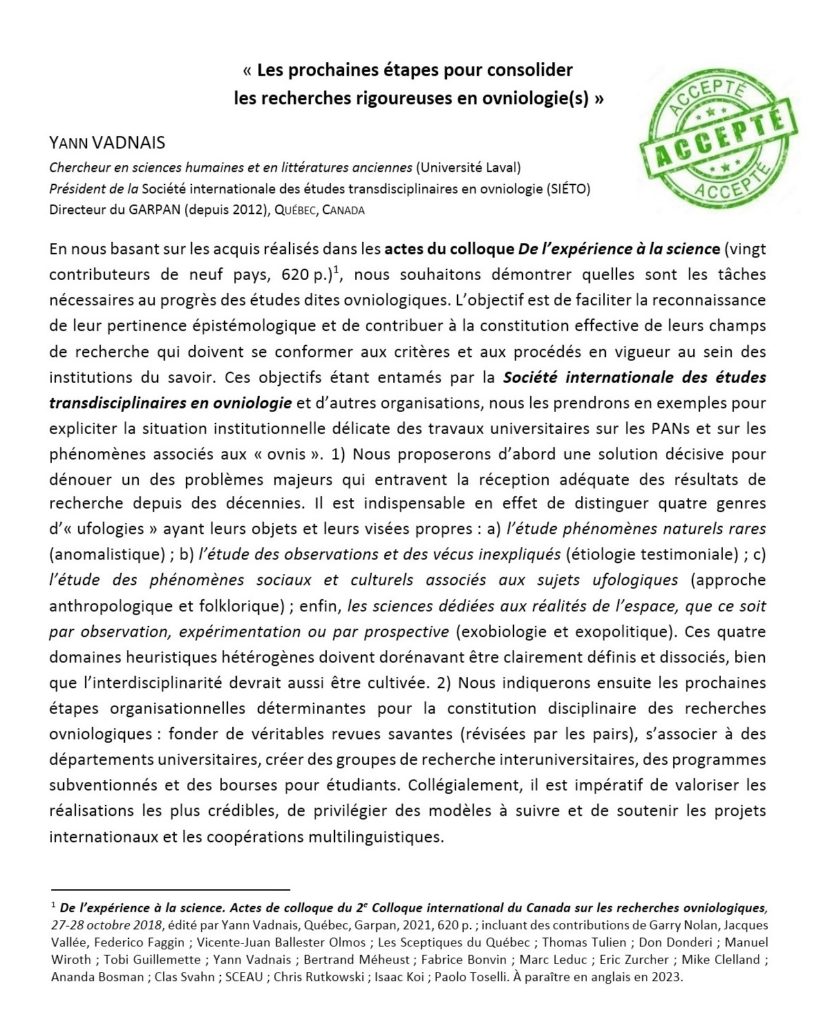
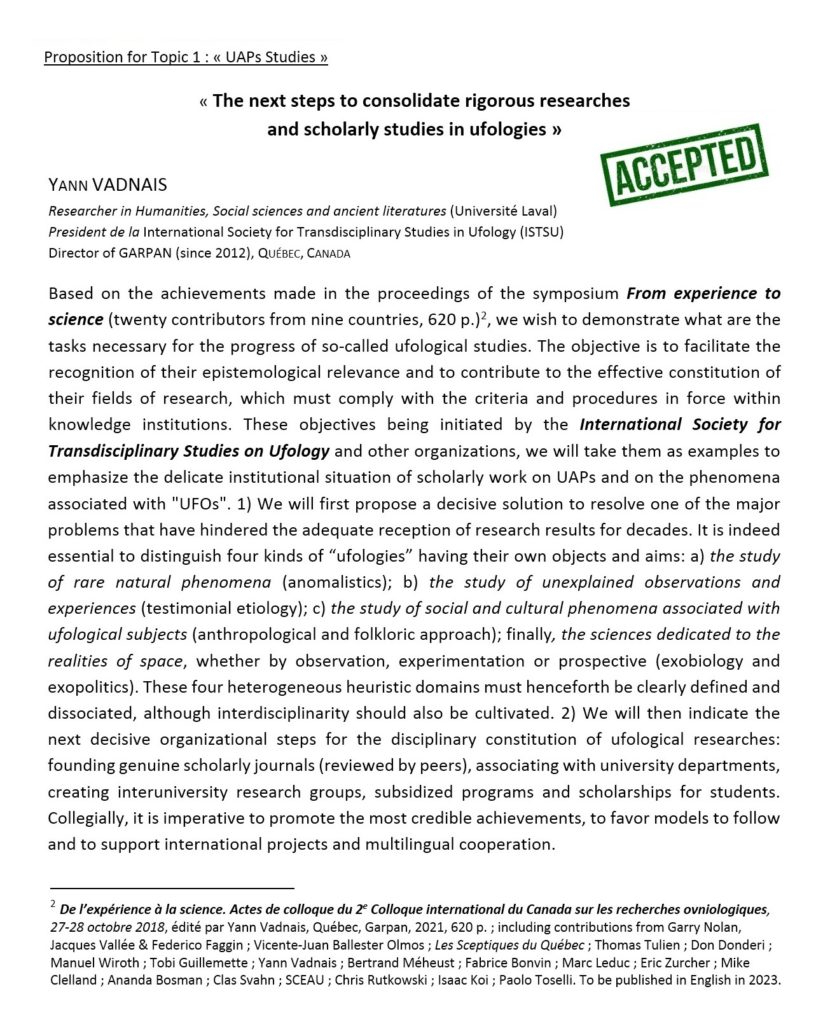
Communication proposal for the CAIPAN workshop 2,
organized by the National Center for Space Studies (CNES)
Proposal for topic 1: “Studies on UAPs”
«The next steps to consolidate rigorous research in ovniology(s) »
Yann VADNAIS
Researcher in human sciences and ancient literature (Université Laval)
President of the International society for transdisciplinary studies in ovniology(SIÉTO)
Director of GARPAN (from 2012), Quebec, Canada
Based on the achievements made in the conference proceedings From experience to scienceand (twenty contributors from nine countries, 620 p.)[1], we wish to demonstrate what are the tasks necessary for the progress of so-called ovniological studies. The objective is to facilitate the recognition of their epistemological relevance and to contribute to the effective constitution of their fields of research which must comply with the criteria and procedures in force within knowledge institutions.. These objectives being initiated by the International society for transdisciplinary studies in ovniology and other organizations, we will take them as examples to explain the delicate institutional situation of university work on UAPs and on the phenomena associated with “UFOs”. 1) We will first propose a decisive solution to resolve one of the major problems that have hindered the adequate reception of research results for decades.. It is indeed essential to distinguish four kinds of "ufologies" having their own objects and aims.: a) the study of rare natural phenomena (anomalistic) ; b) the study of unexplained observations and experiences (testimonial etiology) ; c) the study of social and cultural phenomena associated with ufological subjects (anthropological and folkloric approach) ; finally, sciences dedicated to the realities of space, whether by observation, experimentation or by prospective (exobiology and exopolitics). These four heterogeneous heuristic domains must henceforth be clearly defined and dissociated, although interdisciplinarity should also be cultivated. 2) We will then indicate the next decisive organizational steps for the disciplinary constitution of ovniological research.: establish genuine scholarly journals (peer reviewed), partner with university departments, create inter-university research groups, subsidized programs and scholarships for students. Collegially, it is imperative to highlight the most credible achievements, to favor models to follow and to support international projects and multilingual cooperation.
[1] From experience to science. Conference proceedings of 2and Canadian International Symposium on UFO Research, 27-28 October 2018, edited by Yann Vadnais, Quebec, Garpan, 2021, 620 p. ; including contributions by Garry Nolan, Jacques Vallée, Federico Faggin ; Vicente-Juan Ballester Olmos ; Quebec Skeptics ; Thomas Tulien ; Don Donderi ; Manuel Wiroth ; Tobi Guillemette ; Yann Vadnais ; Bertrand Méheust; Fabrice Bonvin ; Marc Leduc ; Eric Zurcher ; Mike Clelland ; Ananda Bosman ; Clas Svahn ; SEAL ; Chris Rutkowski ; Isaac Koi ; Paolo Toselli. To be published in English in 2023.
Communication proposal for the workshop CAIPAN 2 organized by the National Centre for Space Studies (CNES)
Proposition for Topic 1: « UAPs Studies »
«The next steps to consolidate rigorous researches and scholarly studies in ufologies »
Yann VADNAIS
Researcher in Humanities, Social sciences and ancient literatures (Université Laval)
President of the International Society for Transdisciplinary Studies in Ufology (ISTSU)
Director of GARPAN (since 2012), Quebec, Canada
Based on the achievements made in the proceedings of the symposium From Experience to Science (twenty contributors from nine countries, 620 p.)[2], we wish to demonstrate what are the tasks necessary for the progress of so-called ufological studies. The objective is to facilitate the recognition of their epistemological relevance and to contribute to the effective constitution of their fields of research, which must comply with the criteria and procedures in force within knowledge institutions. These objectives being initiated by the International Society for Transdisciplinary Studies on Ufology and other organizations, we will take them as examples to emphasize the delicate institutional situation of scholarly work on UAPs and on the phenomena associated with “UFOs”. 1) We will first propose a decisive solution to resolve one of the major problems that have hindered the adequate reception of research results for decades. It is indeed essential to distinguish four kinds of “ufologies” having their own objects and aims: a) the study of rare natural phenomena (anomalistics); b) the study of unexplained observations and experiences (testimonial etiology); c) the study of social and cultural phenomena associated with ufological subjects (anthropological and folkloric approach); finally, the sciences dedicated to the realities of space, whether by observation, experimentation or prospective (exobiology and exopolitics). These four heterogeneous heuristic domains must henceforth be clearly defined and dissociated, although interdisciplinarity should also be cultivated. 2) We will then indicate the next decisive organizational steps for the disciplinary constitution of ufological researches: founding genuine scholarly journals (reviewed by peers), associating with university departments, creating interuniversity research groups, subsidized programs and scholarships for students. Collegially, it is imperative to promote the most credible achievements, to favor models to follow and to support international projects and multilingual cooperation.
[2] From experience to science. Conference proceedings of 2and Canadian International Symposium on UFO Research, 27-28 October 2018, edited by Yann Vadnais, Quebec, Garpan, 2021, 620 p. ; including contributions from Garry Nolan, Jacques Vallée & Federico Faggin ; Vicente-Juan Ballester Olmos ; Quebec Skeptics ; Thomas Tulien ; Don Donderi ; Manuel Wiroth ; Tobi Guillemette ; Yann Vadnais ; Bertrand Méheust; Fabrice Bonvin ; Marc Leduc ; Eric Zurcher ; Mike Clelland ; Ananda Bosman ; Clas Svahn ; SEAL ; Chris Rutkowski ; Isaac Koi ; Paolo Toselli. To be published in English in 2023.
